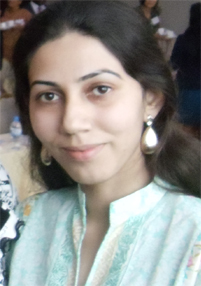To teach is to touch a life forever’. This saying, no matter how simple it may appear, has a powerful and deep meaning. Teachers are influencers who can impact the lives of their students in ways that only few can even imagine. Apart from family, teachers are the ones who spend most time with children, and hence their ability to provide recommendation to parents is extremely valuable. Hence, the importance of a teacher-child relation is manifold.
In present time, where the global attention has focused on inclusive education and voices are being raised regarding equity in education, the role of teachers becomes even more prominent. Teachers have the potential to be the pioneers who can help in the implementation of the concept of inclusive education. Despite the unarguable importance of the role of teachers, profession of teaching remains an underrated and neglected profession in Pakistan. Teachers lack the expertise to teach students with varying abilities in the same classroom, are burdened with piles of paperwork, increased student strength and do not get paid sufficient salaries. General education teachers have raised their concerns about being under equipped to teach children with disabilities (Haider, 2008). This results in either the use of indigenous methods to teach or rigidly sticking with the outdated strategies without incorporating changes according to the child’s needs. During an interview with a former teacher from a private school in Rawalpindi, the teacher explained how the teachers seldom receive training to teach students who show less progress and how they themselves have to figure out ways to teach these students after school hours and during their breaks for them to perform better. This shows that despite no formal training, teachers try putting in maximum effort to take the best out of their students.
On the other hand, recent developments and research in the field of special education have resulted in the Council of Exceptional Children setting a standard for interventions/strategies to be considered as evidence based. In the more developed countries, these standard practices are in use for teaching children with varying backgrounds and abilities in the same classroom. Private schools, who have the recourses to do so, need to take a step forward in developing inclusive classrooms and training their teachers in accordance to practices such as The Universal Design of Learning, Response to Intervention, Positive Behavior Support and other such approaches that are conducive for creating inclusive environments. Along with such practices, an extremely crucial part is to sensitize teachers regarding various disabilities in order to enable them to identify those at risk and connect their parents to the right resources.
With such approaches in use, catering to an inclusive classroom that has children with varying abilities comes as a further challenge and hence requires rigorous and on-going trainings, strong teacher networks, fidelity checks, and on-going feedback to make the system better and efficient. Therefore, the need and time is now to acknowledge and address the gaps that exists in teacher knowledge and practice.
Disclaimer: The views expressed here are those of the authors and do not necessarily represent the views of Idara-e-Taleem-o-Aagahi (ITA)





